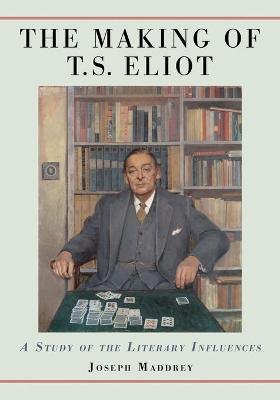More than a century after his earliest works were published, T.S. Eliot remains one of the world's most celebrated - and highly enigmatic - 20th century poets. He is often cited as an authority on modern art, philosophy, and religion, despite the fact that his words are cited in an overwhelming variety of conflicting contexts. An understanding of Eliot's work, then, requires knowledge of his attempts to assimilate many different ideas during his time as a Harvard University student, a struggling poet in World War I London, and an eventual spokesman for the Anglican Church. This chronological survey of major influences on Eliot's worldview covers the poet's spiritual and intellectual evolution in stages, by trying to see the world as Eliot did. The first half of the book examines his childhood influences as well as the literary influences that inspired him to write his earliest poetry. These chapters examine Eliot's formal education, including his years as an undergraduate at Harvard University, where he focused on the Western canon and came to understand his own writing as the product of a cumulative literary tradition. The second half of the book tracks Eliot's life as an American expatriate living in London from 1915 to 1930, studying his ill-fated marriage and his intellectual engagement with the literary traditions of his new country. This section also finds the poet examining his identity as a European in the aftermath of World War I - an examination which, coupled with personal crisis, produced his masterpiece The Waste Land. The final chapters reveal the ways in which Eliot's intellectual pursuits fostered a spiritual rebirth that simultaneously reflected his past and revealed his future, demonstrating how the early Romantic revolutionary became a staunch defender of tradition.
- ISBN13 9780786442713
- Publish Date 29 April 2009
- Publish Status Active
- Publish Country US
- Imprint McFarland & Co Inc
- Format Paperback
- Pages 190
- Language English
